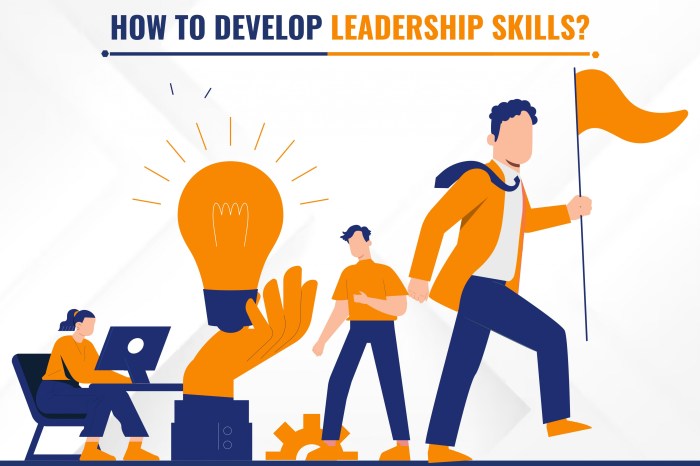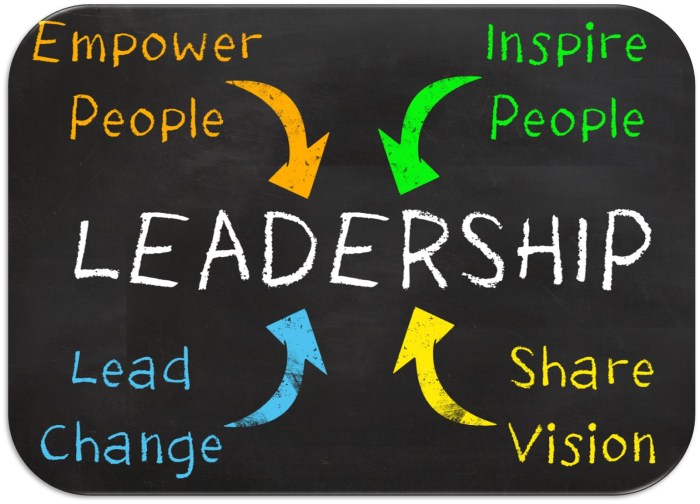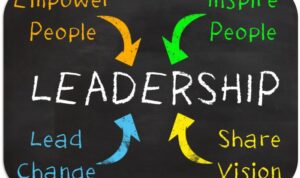Leadership Development sets the stage for this enthralling narrative, offering readers a glimpse into a story that is rich in detail with american high school hip style and brimming with originality from the outset.
Get ready to explore the key components of leadership development, strategies for effective implementation, and ways to measure success in this dynamic field.
Overview of Leadership Development
Leadership development is the process of improving the skills, abilities, and attitudes of leaders within an organization to enhance their performance and effectiveness. It is crucial for organizations to invest in leadership development programs as it helps in nurturing future leaders, building a strong leadership pipeline, and driving organizational success.
Importance of Leadership Development
- Enhances employee engagement and retention by providing opportunities for growth and advancement.
- Improves decision-making and problem-solving skills among leaders, leading to better outcomes for the organization.
- Creates a positive work culture and fosters innovation and creativity within the organization.
Benefits of Investing in Leadership Development Programs
- Increased productivity and efficiency within the organization.
- Improved employee morale and satisfaction.
- Reduction in employee turnover rates.
Examples of Successful Leadership Development Initiatives
Google’s ‘Project Oxygen’ identified key behaviors of effective leaders and provided training programs to develop these skills among its employees.
General Electric’s Leadership Development Program focuses on rotational assignments, coaching, and feedback to groom future leaders.
Amazon’s ‘Bar Raiser’ program ensures that new hires meet their high standards by having experienced employees assess candidates during interviews.
Key Components of Leadership Development

Leadership development involves honing various skills and qualities that are essential for effective leadership. This process not only focuses on individual growth but also on empowering others to reach their full potential.
Essential Skills for Leaders
Leaders need to develop a range of skills to excel in their roles. These include:
- Communication: The ability to clearly convey ideas and information.
- Decision-making: Making sound judgments in complex situations.
- Problem-solving: Addressing challenges and finding solutions efficiently.
- Adaptability: Being able to adjust to changing circumstances.
- Empathy: Understanding and connecting with others on an emotional level.
Role of Mentorship and Coaching
Mentorship and coaching play crucial roles in leadership development by providing guidance, support, and feedback to aspiring leaders. Mentors and coaches help individuals identify their strengths and areas for improvement, offering valuable insights and perspective.
Importance of Emotional Intelligence
Emotional intelligence is a key component of effective leadership as it involves understanding and managing emotions, both in oneself and others. Leaders with high emotional intelligence can build strong relationships, navigate conflicts, and inspire trust and loyalty among their team members.
Strategies for Effective Leadership Development

Effective leadership development is crucial for individuals looking to enhance their leadership skills and capabilities. By exploring different approaches and models, aspiring leaders can create personalized plans to reach their full potential.
Workshops, Seminars, and Online Courses
- Workshops and seminars provide hands-on training and interactive learning experiences for participants.
- Online courses offer flexibility and accessibility, allowing individuals to learn at their own pace and convenience.
- Combining these approaches can provide a well-rounded development experience for aspiring leaders.
Leadership Development Models
- Situational leadership focuses on adapting leadership styles based on the needs of the situation and the maturity of team members.
- Transformational leadership emphasizes inspiring and motivating others to achieve common goals and create positive change.
- By understanding and applying these models, aspiring leaders can enhance their leadership effectiveness in different contexts.
Personalized Leadership Development Plan
Creating a personalized leadership development plan involves setting specific goals, identifying strengths and areas for improvement, and outlining actionable steps to achieve growth. This tailored approach allows aspiring leaders to focus on their unique development needs and progress towards becoming effective leaders in their respective fields.
Measuring Success in Leadership Development
To evaluate the effectiveness of leadership development programs, it is essential to establish clear metrics and key performance indicators (KPIs) to track progress and outcomes. By measuring specific aspects of leadership development, organizations can assess the impact of their programs and make data-driven decisions for improvement.
Key Performance Indicators for Measuring Leadership Development Outcomes
- Employee Engagement: Measure the level of engagement and motivation among employees who have participated in leadership development programs. Higher engagement levels indicate a positive impact on leadership skills.
- Retention Rates: Monitor the retention rates of employees who have undergone leadership development training. Lower turnover rates can indicate the effectiveness of the program in developing and retaining talent.
- Performance Metrics: Analyze the performance metrics of leaders who have completed development programs to assess improvements in key areas such as decision-making, communication, and team management.
- 360-Degree Feedback: Collect feedback from peers, subordinates, and supervisors to evaluate the behavioral changes and leadership effectiveness of program participants.
Long-term Impact of Leadership Development on Organizational Growth and Employee Satisfaction
Leadership development programs have a significant long-term impact on organizational growth and employee satisfaction. By investing in the development of strong leaders, organizations can experience improved productivity, innovation, and overall performance. Additionally, employees who receive quality leadership training are more likely to feel valued, engaged, and motivated, leading to higher job satisfaction and retention rates. Ultimately, effective leadership development contributes to a positive organizational culture and sustainable growth.

